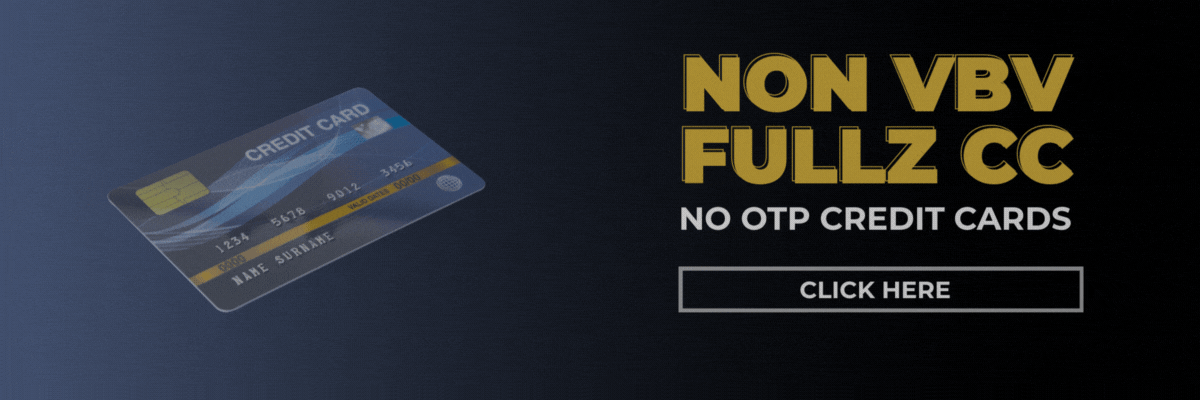If you’re not using non vbv cards in your hustle by now, you’re either green or being too careful. Verified by Visa (VBV) and Mastercard SecureCode put up an extra wall — but the streets cracked that wall years ago. This isn’t beginner chatter. This is for the sharp ones making silent moves and stacking in silence. No filler. Just game.
What Are Non VBV Cards?
Non vbv cards are credit cards that skip 3D Secure verification. No OTP. No redirect. Just swipe and dip. These are the real cards you need if you’re pushing high-risk or grey-area plays — especially internationally. They’re commonly used for:
- Bypassing OTPs (One Time Passwords)
- Shopping on cardable stores
- Automating high-volume purchases
- Quick dumps to crypto or digital goods
VBV vs Non VBV – Why It Matters
VBV = headaches. OTP popups, phone verification, extra gateways. Non VBV = clean, direct transactions. That difference saves you time and heat.
How to Identify Non VBV Cards (The Real Way)
Forget asking random vendors for “non vbv cc.” Most don’t even test bins properly. Here’s how you check yourself:
- Use BIN checkers (but not just any — private scrapers are better)
- Run the BIN through sites like Stripe, Shopify, or cardable merchants
- Check for no redirect to 3D Secure when doing a test checkout
Pro tip: Use a hidden browser or VM with logs disabled. Some sites ghost log your browser fingerprint.
Non VBV BIN List Sources (Trusted Ones Only)
Don’t chase Telegram hype. Instead, dig these deep:
- cvvglitch.com – Pay for their tools. Worth it.
- supremehackers.net – Drops fresh BINs weekly, no fluff.
- cardinghub.com– If you know, you know. Real-time chatter, zero fake reps.
Always verify with live tests. BINs change status fast — today’s gem is tomorrow’s dud.
How to Use Non VBV Cards Like a Ghost
This is where rookies fumble. Owning a non vbv card means nothing if you don’t move smart. Here’s the protocol:
Step 1: Use a Bulletproof RDP or Private VPN
Don’t touch anything with your local IP. Use a bulletproof server with a clean residential IP matching the BIN’s issuing country.
Step 2: Match Billing & Device Fingerprint
- Use fullz that match the card (name, zip, phone, etc.)
- Emulate browser fingerprint with anti-detect browsers like Sphere or Incogniton
Step 3: Hit Low-Key Merchants First
Warm the card up. Start with low-risk purchases (Spotify, VPS, eBooks) before going big (electronics, crypto, gift cards).
Step 4: Don’t Reuse Burned Cards
Once it flags, it’s dead weight. Dump and rotate. Always have backups in your stash.
What to Avoid (If You Want to Stay Up)
- Public BINs shared in spammy groups – already toasted
- Overusing one merchant – triggers fraud flags
- Mixing real info with synthetic profiles – sloppy trails
- Using non vbv cards on your home Wi-Fi – instant trace
Final Thoughts – Don’t Flash, Just Stack
Non vbv cards are tools — not magic bullets. If you treat the game like a flex, you’ll crash. But if you move cold, calculated, and anonymous, it pays off. Always test your sources. Always verify your cards. And never talk too loud in places that matter.
Stay silent. Stack steady. The game’s always evolving — stay two moves ahead.
















